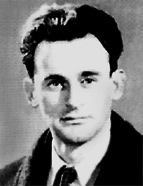

Born in Paris in 1915 to a Jewish family, Albert Silbert completed his secondary and higher education in the city, attending the Sorbonne and the École des Hautes Études [School of Advanced Studies] (VI section) in the late 1930s, before the outbreak of the Second World War. This was the period during which his intellectual development took shape. His teachers included such influential figures in French and international historiography as Marc Bloch and Georges Lefebvre at the Sorbonne and Fernand Braudel at the École des Hautes Études. Among his colleagues were future historians who would also excel in their profession and share his interest in the Iberian countries and their empires, such as Frédéric Mauro. In an interview with Ler História [Studying History] magazine in 1985, Silbert explained that his interest in the Iberian world was first sparked during his time as a candidate for the agrégation under Braudel's guidance. This interest was further deepened by both historical and contemporary political events, particularly the Spanish Civil War, which he acknowledged as "a shock" for him, as it was for many young people of his generation. In the same interview, Silbert made explicit the connection between his historical studies and contemporary politics, saying, "As I had a degree in history, I wanted to understand the relationships between political and social phenomena, and particularly the influence of large landholdings on the origins of that conflict." (Albert Silbert, Interview with Ler História , Issue 5 (1985), conducted by Magda Pinheiro, p. 121).
While these political and social questions informed his later studies of agrarian history, particularly in his landmark doctoral thesis Le Portugal Méditerranéen à la fin de l’Ancien Régime - XVIIIe – début du XIXe siècle. Contribution à l’histoire agraire comparée [Mediterranean Portugal at the end of the Ancien Régime - 18th and early 19th centuries. A contribution to comparative agrarian history] , Silbert also attributed his fascination with agrarian history to the influence of Marc Bloch and Georges Lefebvre. In the introduction to that work, he acknowledged their impact, as well as the inseparability of this interest from his training in geography—a discipline that, at the time, was deeply intertwined with history in the French university system. In the same interview, Silbert noted, "I must not forget the role of geographers. Before the war, French historians were even more grounded in geography than they are today (...) but the agrarian geography of the time employed historical explanation. There was much discussion of 'collectivism' and 'individualism'.” ( Le Portugal Méditerranéen..., p. 122).
This work is financed by national funds through FCT - Foundation for Science and Technology, I.P, in the scope of the projects UIDB/04311/2020 and UIDP/04311/2020.
